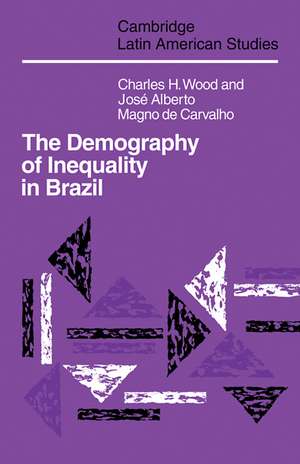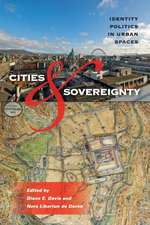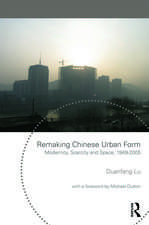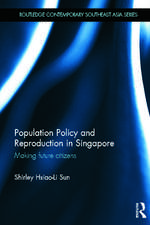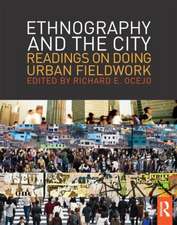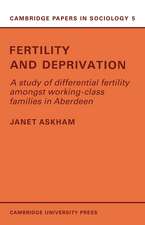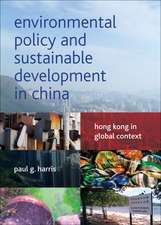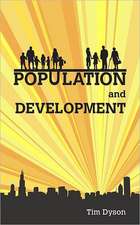The Demography of Inequality in Brazil: Cambridge Latin American Studies, cartea 67
Autor Charles H. Wood, Jose Alberto Magno Carvalhoen Limba Engleză Paperback – 11 mar 2009
Din seria Cambridge Latin American Studies
-
 Preț: 200.79 lei
Preț: 200.79 lei - 9%
 Preț: 593.10 lei
Preț: 593.10 lei -
 Preț: 231.54 lei
Preț: 231.54 lei -
 Preț: 198.38 lei
Preț: 198.38 lei -
 Preț: 236.92 lei
Preț: 236.92 lei -
 Preț: 188.27 lei
Preț: 188.27 lei -
 Preț: 236.99 lei
Preț: 236.99 lei -
 Preț: 322.67 lei
Preț: 322.67 lei -
 Preț: 289.01 lei
Preț: 289.01 lei -
 Preț: 526.45 lei
Preț: 526.45 lei -
 Preț: 209.07 lei
Preț: 209.07 lei - 11%
 Preț: 691.66 lei
Preț: 691.66 lei -
 Preț: 257.52 lei
Preț: 257.52 lei -
 Preț: 290.63 lei
Preț: 290.63 lei -
 Preț: 238.63 lei
Preț: 238.63 lei -
 Preț: 234.31 lei
Preț: 234.31 lei - 9%
 Preț: 594.06 lei
Preț: 594.06 lei -
 Preț: 156.72 lei
Preț: 156.72 lei - 11%
 Preț: 591.79 lei
Preț: 591.79 lei - 14%
 Preț: 732.69 lei
Preț: 732.69 lei -
 Preț: 325.38 lei
Preț: 325.38 lei - 11%
 Preț: 694.91 lei
Preț: 694.91 lei -
 Preț: 328.56 lei
Preț: 328.56 lei -
 Preț: 321.74 lei
Preț: 321.74 lei - 5%
 Preț: 306.74 lei
Preț: 306.74 lei -
 Preț: 287.07 lei
Preț: 287.07 lei -
 Preț: 284.98 lei
Preț: 284.98 lei -
 Preț: 287.66 lei
Preț: 287.66 lei -
 Preț: 284.39 lei
Preț: 284.39 lei -
 Preț: 318.84 lei
Preț: 318.84 lei -
 Preț: 287.28 lei
Preț: 287.28 lei -
 Preț: 191.51 lei
Preț: 191.51 lei -
 Preț: 322.51 lei
Preț: 322.51 lei -
 Preț: 236.72 lei
Preț: 236.72 lei
Preț: 285.75 lei
Nou
Puncte Express: 429
Preț estimativ în valută:
54.68€ • 58.47$ • 45.59£
54.68€ • 58.47$ • 45.59£
Carte tipărită la comandă
Livrare economică 18 aprilie-02 mai
Preluare comenzi: 021 569.72.76
Specificații
ISBN-13: 9780521102469
ISBN-10: 0521102464
Pagini: 316
Dimensiuni: 140 x 216 x 18 mm
Greutate: 0.4 kg
Editura: Cambridge University Press
Colecția Cambridge University Press
Seria Cambridge Latin American Studies
Locul publicării:New York, United States
ISBN-10: 0521102464
Pagini: 316
Dimensiuni: 140 x 216 x 18 mm
Greutate: 0.4 kg
Editura: Cambridge University Press
Colecția Cambridge University Press
Seria Cambridge Latin American Studies
Locul publicării:New York, United States
Cuprins
1. Introduction; 2. Framework for the study of population; 3. Growth and distribution in historical perspective; 4. Income inequality and length of life; 5. Wage policy, infant mortality and collective social action in São Paulo; 6. Racial inequality and child mortality; 7. The 'baby' bust; 8. Income distribution and population growth; 9. Agrarian structure and the rural exodus; 10. Colonization and frontier expansion in Amazonia; 11. Development and persistent underemployment; 12. The demography of inequality in Brazil: summary and conclusion.
Descriere
This book examines how transformations in Brazil's social, economic and political organization affect the demographic behaviour of people who live in different parts of the country.
